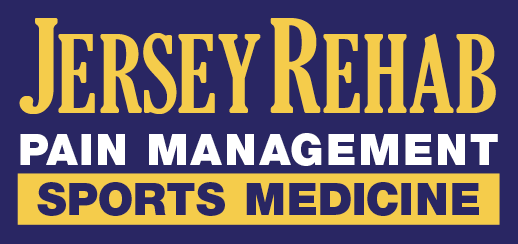From Tech Neck to Whiplash: Common Culprits Behind Chronic Neck Pain
In today’s technology-driven world, many people experience chronic neck pain that can range from a minor annoyance to debilitating discomfort. Whether caused by poor posture while using electronic devices or traumatic injuries like whiplash, chronic neck pain is a growing issue that affects millions globally. Understanding the common causes and learning how to prevent and treat them is crucial to maintaining long-term health and well-being.
The Anatomy of the Neck: Why It’s Prone to Pain
The neck, or cervical spine, is a complex structure composed of seven vertebrae, muscles, ligaments, and nerves that support the head’s weight and allow for its wide range of motion. Unfortunately, the very features that make the neck flexible and mobile also make it susceptible to strain, injury, and chronic pain. The neck endures constant stress and pressure as it supports the head, which weighs around 10 to 12 pounds. When we engage in activities that put additional strain on this area, like using electronic devices or suffering from an injury, chronic neck pain becomes inevitable for many.
Tech Neck: A Modern Health Crisis
“Tech neck,” also known as “text neck,” is one of the most common causes of chronic neck pain in the 21st century. As technology continues to dominate our lives, from smartphones to laptops and tablets, people often spend hours each day with their heads tilted forward, which significantly increases the strain on their cervical spine. This condition occurs when the head is repeatedly bent forward for extended periods, increasing the pressure on the neck’s muscles and vertebrae.
When you tilt your head at a 15-degree angle to look down at your phone, it can add about 27 pounds of pressure on your neck. At a 45-degree angle, the pressure increases to 50 pounds. Over time, this added weight leads to muscular imbalances, stiffness, and ultimately chronic neck pain.
Symptoms of Tech Neck:
- Neck stiffness and soreness: The muscles and ligaments in the neck can become tight and inflamed, making movement painful.
- Headaches: Tension headaches are often caused by strain in the neck muscles.
- Shoulder pain: The strain from the tech neck can extend down to the shoulders, causing tension and discomfort in this area.
- Tingling or numbness: Prolonged strain can affect the nerves in the neck, leading to tingling, numbness, or weakness in the arms and hands.
Preventing tech neck requires awareness of your posture, especially when using electronic devices. To avoid putting excess strain on your neck, hold your phone at eye level, take regular breaks from screen time, and incorporate neck-strengthening exercises into your routine.
Whiplash: The Lingering Trauma from Sudden Impact
Another common cause of chronic neck pain is whiplash, which occurs when the neck is forcefully jerked back and forth, typically during a car accident. The rapid movement stretches and tears the muscles and ligaments in the neck, leading to pain and stiffness. While many people recover from whiplash within a few weeks, others may experience lingering pain and discomfort that can persist for months or even years.
Whiplash can be difficult to diagnose immediately, as symptoms often take hours or even days to appear after the initial trauma. This delay can make it harder to seek timely treatment, which is crucial for preventing chronic pain.
Common Symptoms of Whiplash:
- Neck pain and stiffness: The most common symptoms, these are often accompanied by reduced range of motion.
- Headaches: Typically starting at the base of the skull and radiating forward.
- Dizziness and fatigue: Whiplash can lead to feelings of exhaustion and occasional dizziness.
- Tingling or numbness: Damage to the cervical spine or nerves can cause sensations of tingling, numbness, or weakness in the arms.
- Difficulty concentrating or memory issues: Some people experience cognitive issues following a whiplash injury, particularly if it was a severe case.
Early intervention for whiplash is critical in preventing long-term neck pain. Treatment options may include physical therapy, chiropractic care, or targeted exercises that focus on rebuilding neck strength and flexibility.
Poor Posture and Ergonomics: A Gradual Build-Up of Pain
Chronic neck pain doesn’t always result from a sudden trauma or repetitive stress from technology use. Sometimes, it develops gradually due to poor posture or ergonomics. Whether you’re slouched at a desk for hours on end or using furniture that doesn’t provide proper support, poor posture places continuous strain on your neck muscles and spinal structure.
When you slump or hunch over, your neck is forced to work harder to support your head, which can lead to muscle fatigue, joint misalignment, and chronic pain. For individuals working from home or spending prolonged hours seated at a computer, proper ergonomic setups are vital to preventing neck pain.
Tips for Preventing Neck Pain from Poor Posture:
- Adjust your chair height so that your feet are flat on the floor and your knees are level with your hips.
- Position your computer screen at eye level to avoid constantly looking down.
- Take regular breaks: Stand up, stretch, and walk around every 30 minutes to reduce tension on your neck and back.
- Practice good posture: Keep your shoulders back and avoid slouching to maintain a neutral spine position.
Stress: An Overlooked Cause of Neck Pain
Emotional stress can manifest physically in the body, often concentrating in the neck and shoulders. When you’re under stress, your muscles tighten, which can lead to chronic tension and discomfort. People under significant stress may unconsciously clench their neck or shoulder muscles, exacerbating existing neck pain.
To manage stress-related neck pain, consider relaxation techniques such as deep breathing, mindfulness meditation, or even gentle neck exercises that help alleviate tension.
Seeking Professional Help for Chronic Neck Pain
While some neck pain can be treated with lifestyle changes, others may require professional intervention. Physical therapy, chiropractic care, and medical evaluations can provide relief for more persistent issues. For chronic neck pain caused by tech neck, whiplash, poor posture, or other factors, early diagnosis and treatment are essential to prevent further complications.
Jersey Rehab: Your Partner in Neck Pain Relief
If you’re struggling with chronic neck pain, whether from tech neck, whiplash, or poor posture, Jersey Rehab offers expert care to help you find relief. Our team specializes in diagnosing and treating a wide range of neck-related issues, from acute injuries to chronic conditions. We use the latest therapeutic techniques, including physical therapy, chiropractic adjustments, and personalized rehabilitation plans, to address the root cause of your pain.
Don’t let neck pain control your life. Schedule a consultation and discover how we can help you regain your mobility and quality of life.

